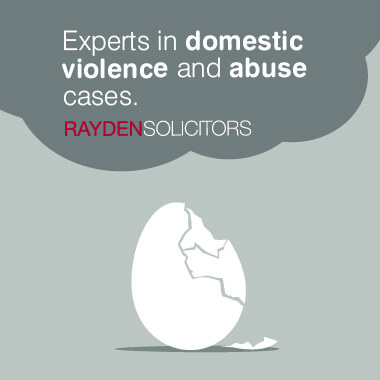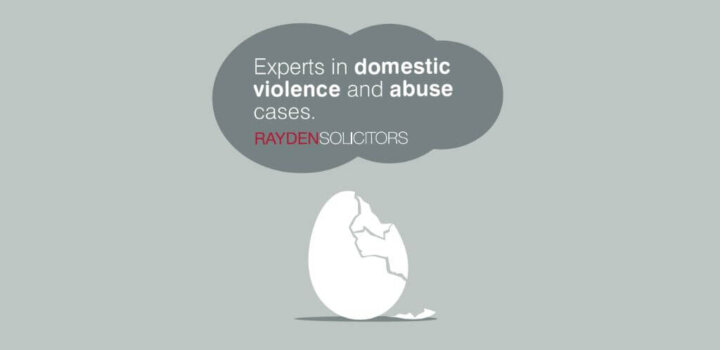

DOMESTIC ABUSE AND EMOTIONAL ABUSE SOLICITORS
What is domestic abuse?
Domestic abuse occurs when one person harms another person with whom they have or have had a relationship. Domestic abuse can be where one person physically attacks the other, but it can also include:
- coercive control and ‘gaslighting’
- economic abuse
- online abuse
- threats and intimidation
- emotional abuse
- sexual abuse
Children can be victims if they have witnessed domestic abuse being experienced by their sibling/parent.
If you need help to recognise whether you are being abused, there are many organisations that can give you confidential advice and we can provide you with details of them. There are also many local shelters and we can help you find a place of safety.
What is coercive controlling behaviour?
Coercive controlling behaviour is a form of domestic abuse. The definitions are:
Coercive behaviour
An act, or a pattern of acts of assault, threats, humiliation and intimidation or other abuse that is used to harm, punish, or frighten the victim. This type of domestic abuse can include:
- Threatening to self-harm or commit suicide
- Stopping the victim from being able to follow their religious or cultural practice
- Threatening to make false reports about the victims to the local council or the police
Controlling behaviour
A range of acts designed to make a person subordinate and/or dependent by isolating them from sources of support, exploiting their resources and capacities for personal gain, depriving them of the means needed for independence, resistance and escape and regulating their everyday behaviour.
What is gaslighting?
The term refers to a form of intimidation or psychological abuse where false information is presented to the victim, in order to encourage them to doubt their memory and perception.
At its most extreme, gaslighting is used by abusers in conjunction with physical abuse to prevent it from being reported.
The techniques have been compared to brainwashing and have lasting effects on the victim. Gaslighting is often difficult to spot as it has no obvious physical signs, however is very manipulative and can cause long-term mental health issues which often lead to victims questioning their own sanity.
5 key characteristics of gaslighting:
- Manipulation
- Denial
- Misdirection
- Contradiction
- Lying
What is emotional abuse?
Emotional abuse – also known as psychological abuse – can be particularly hard to spot because it leaves no physical evidence on the victim, but it is just as damaging to a victim. The abuser is trying to gain psychological power and control over the victim.
Emotional abuse is typically verbal and can involve the abuser:
- Threatening the victim
- Making the victim believe they are worthless
- Ignoring the victim
- Trying to control the victim – what they say, do and wear
- Humiliating the victim or comparing the victim to others to damage their self-esteem
- Being overly possessive and constantly accusing the victim of cheating
- Sending insulting and harassing messages to the victim
Legal options for those affected by domestic abuse
If you are a victim of domestic abuse, you have a number of options available. These include reporting the violence to the police, leaving home temporarily (or permanently) or staying in your home and getting the person who is harming you to leave. The paramount consideration is securing your safety and we can provide legal advice as to the most appropriate steps to take.
Once you are safe, consideration needs to be taken as to your future plans such as:
- Whether you wish to permanently separate from your partner
- Whether you want to take action to keep the violent partner away from you
- Protecting your rights to the family home – whether this involves preserving your interests after you have left the property or maintaining your interest whilst you remain there
- Ensuring that appropriate contact arrangements are in place between the children and your former spouse or partner
If you find yourself facing allegations of domestic abuse, you need to carefully consider the following:
- Should you continue to live together?
- What steps should be taken to protect you from further allegations?
- Protecting your rights to the family home – whether this involves preserving your interests after you have left the property or maintaining your interest whilst you remain there
- Ensuring that appropriate contact arrangements are in place between you and your children
What Rayden Solicitors can do for you
We are domestic abuse solicitors who have a great deal of experience in high-conflict cases.
We also have experience in making and defending a range of emergency applications.
We provide pragmatic and non-judgmental advice that ensures that steps are taken that are proportionate to the concerns raised and that limit the chance of any further occurrences.
In order to resolve a case, a clear strategy needs to be put into place that recognises the need for a constructive dialogue to occur, breaking the cycle that had taken place before.
If necessary, we can point our client to specialist therapeutic help which should enable them to further cope with the whole process.
The breakdown of any relationship can be stressful, but when there are complicating factors such as this, it is imperative to get expert help to guide you through.
For more information on the issues raised and to learn more about what relationship breakdown advice is available, please do not hesitate to contact one of the team at Rayden Solicitors.
Rayden Solicitors is committed to equality and diversity and in doing so supports and advises all members of our community.
If you are a victim of domestic abuse, we will become part of your support network, providing the expert advice you need at each step which will in turn allow you to heal and recover and look forward to a happy future.
A huge thank you. I cannot articulate quite how much you have all been my pillar of strength through this journey and I will be eternally grateful.
Client
Useful links
Lehna Gardiner
Partner Collaborative Lawyer
Lehna talks about Domestic Abuse in this podcast
We are here to help you
If you would like to arrange a first meeting or have any questions, please contact us or fill in the enquiry form below.
"*" indicates required fields













